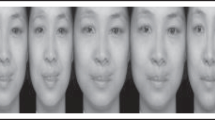Abstract
This study examines the influence of aerobic exercise activity, soothing musicnature scenes condition, and suggestion on coping with test-taking anxiety. Sixty test anxious subjects were randomly assigned to four treatment groups consisting of 15-min episodes of exercise or soothing music-nature scenes condition with or without verbal suggestion that the treatment task in which they were engaged would be helpful to them. A videotaped “intelligence test” used to stimulate test-taking anxiety was given to the subjects after the soothing music-nature scenes condition or exercise tasks. The Multiple Affect Adjective Checklist (MAACL) was used to appraise anxiety during the laboratory procedures. Results indicate that exercise, soothing music-nature scenes condition, and suggestion play a role in reducing anxiety. While relaxation activity proved to be superior to exercise in reducing anxiety immediately following the “treatment” episode, these differences disappear following exposure to a stressful “IQ test” and exercise (as well as suggestion) had a better stress inoculation effect than soothing music-nature scenes condition or no suggestion.
Similar content being viewed by others
References
Bandura, A. (1977). Self-efficacy: Toward a unifying theory of behavioral change.Psychological Review, 84, 191–215.
Bandura, A. (1995). Moving into forward gear in health promotion and disease prevention.Proceedings of the Society of Behavioral Medicine's 16th Annual Scientific Sessions, 17, 28.
Barabasz, M. (1991). Effects of aerobic exercise on transient mood state.Perceptual and Motor Skills, 73, 657–658.
Brown, S. W., Welsh, M. C., Labbe, E. E., Vitulli, W. F., & Kulkarni, P. (1992). Aerobic exercise in the psychological treatment of adolescents.Perceptual and Motor Skills, 74, 555–560.
Buffone, G. W. (1980). Exercise as therapy: A closer look.Journal of Counseling and Psychotherapy, 3, 101–115.
Cohen, J. (1988).Statistical Power Analysis for the Behavioral Sciences (2nd ed.), Hillsdale, NJ: Erlbaum.
Cowper, P. A., Morey, M. C., Bearon, L. S., Sullivan, R. J. et al. (1991). The impact of supervised exercise on the psychological well-being and health status of older veterans.Journal of Applied Gerontology, 10, 469–485.
Crocker, P. R., & Grozelle, C. (1991). Reducing induced state anxiety: Effects of acute aerobic exercise and autogenic relaxation.Journal of Sports Medicine and Physical Fitness, 31, 277–282.
Desharnais, R., Tobin, J., Cote, C., Levesque, L., & Godin, G. (1993). Aerobic exercise and the placebo effect: A controlled study.Psychosomatic Medicine, 55, 149–154.
Doan, T., Plante, T. G., Manuel, G., & DiGregorio, M. (1995). The influence of aerobic exercise and relaxation training on coping with test-taking anxiety.Anxiety, Stress, and Coping, 8, 101–111.
Folkins, C. H., & Sime, W. E. (1981). Physical fitness and mental health.American Psychologist, 36, 373–389.
Helin, P., & Hanninen, O. (1988). The effects of extended audio cassette-relaxation training and running exercise on physiological responses during a teaching test.Journal of Psychophysiology, 2, 259–267.
Holmes, D. S., & Roth, D. L. (1988). Effects of aerobic exercise training and relaxation training on cardiovascular activity during psychological stress.Journal of Psychosomatic Research, 32, 469–474.
Hughes, J. R. (1984). Psychological effects of habitual aerobic exercise: A critical review.Preventive Medicine, 13, 66–78.
Impressions Collection, Vol. II (1987).The quiet garden, an experience in the art of living. Media in YM Productions.
King, A. C., Taylor, C. B., Haskell, W. L., & Debusk, R. F. (1989). Influence of regular aerobic exercise on psychological health: A randomized, controlled trial of healthy middle-aged adults.Health Psychology, 8, 305–324.
Long, B. C. (1983). Aerobic conditioning and stress reduction: Participation or conditioning?Human Movement Science, 2, 171–186.
McGowan, R. W., Pierce, E. F., & Jordan, D. (1991). Mood alterations with a single bout of physical activity.Perceptual and Motor Skills, 72, 1203–1209.
Nickel, E., Lubin, B., & Rinch, C. M. (1986). The new MAACL scales with adolescents: Preliminary reliability and validity determinations.Adolescence, 21, 81–86.
Norris, R., Carroll, D., & Cochrane, R. (1992). The effects of physical activity and exercise on psychological stress and well-being in an adolescent population.Journal of Psychosomatic Research, 36, 55–65.
Petruzzello, S. J., Landers, D. M., Hatfield, B. D., Kabitz, K. A., & Salazar, W. (1991). A metaanalysis on the anxiety reducing effects of acute and chronic exercise: Outcome and mechanism.Sports Medicine, 11, 143–182.
Plante, T. G. (1993). Aerobic exercise in the prevention and treatment of psychopathology. In P. Seraganian (Ed.),Exercise psychology: The influence of physical exercise on psychological processes (pp. 358–379). New York: John Wiley & Sons.
Plante, T. G., & Denney, D. R. (1984). Stress responsivity among dysmenorheic women at different phases of their menstrual cycle: More ado about nothing.Behavior Research and Therapy, 22, 249–258.
Plante, T. G., & Karpowitz, D. (1987). The influence of aerobic exercise on physiological stress responsivity.Psychophysiology, 24, 670–677.
Plante, T. G., & Rodin, J. (1990). Physical fitness and enhanced psychological health.Current Psychology: Research and Reviews, 9, 3–24.
Rodin, J. & Plante, T. G. (1989). The psychological effects of exercise. In: R. S. Williams and A. Wallace (Eds.),Biological effects of physical activity. Champaign, IL: Human Kinetics Books.
Roth, D. L., & Holmes, D. S. (1987). Influence of aerobic exercise training and relaxation training on physical and psychologic health following stressful life events.Psychosomatic Medicine, 49, 355–365.
Steptoe, A., & Cox, S. (1988). Acute effects of aerobic exercise on mood.Health Psychology, 7, 329–340.
Steptoe, A., Edwards, S., Moses, J., & Matthews, A. (1989). The effects of exercise training on mood and perceived coping ability in anxious adults from the general population.Journal of Psychosomatic Research, 33, 537–547.
Topp, R. (1989). Effect of relaxation or exercise on undergraduates' test anxiety.Perceptual and Motor Skills, 69, 35–41.
Wechsler, D. (1981).Manual for the Wechsler Adult Intelligence Scale—Revised. New York: The Psychological Corporation.
Zukerman, M., & Lubin, B. (1965).The multiple affect adjective checklist. San Diego, CA. Educational and Industrial Testing Service.
Author information
Authors and Affiliations
Rights and permissions
About this article
Cite this article
Plante, T.G., Marcotte, D., Manuel, G. et al. The influence of brief episodes of aerobic exercise activity, soothing music-nature scenes condition, and suggestion on coping with test-taking anxiety. Int J Stress Manage 3, 155–166 (1996). https://doi.org/10.1007/BF01857822
Issue Date:
DOI: https://doi.org/10.1007/BF01857822




